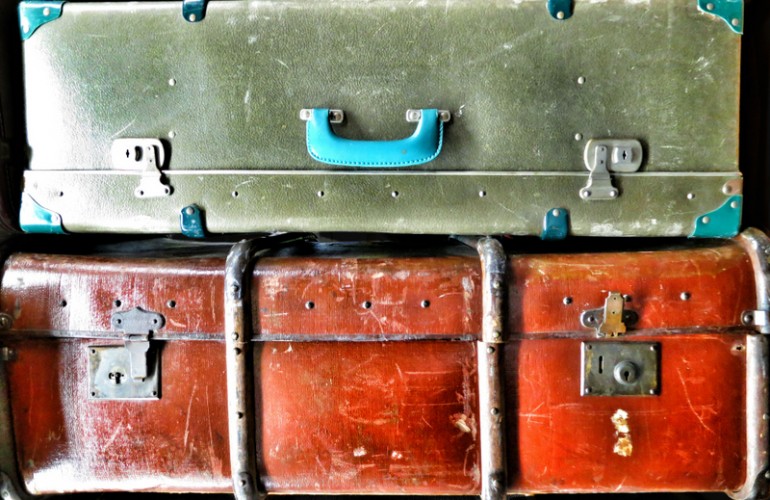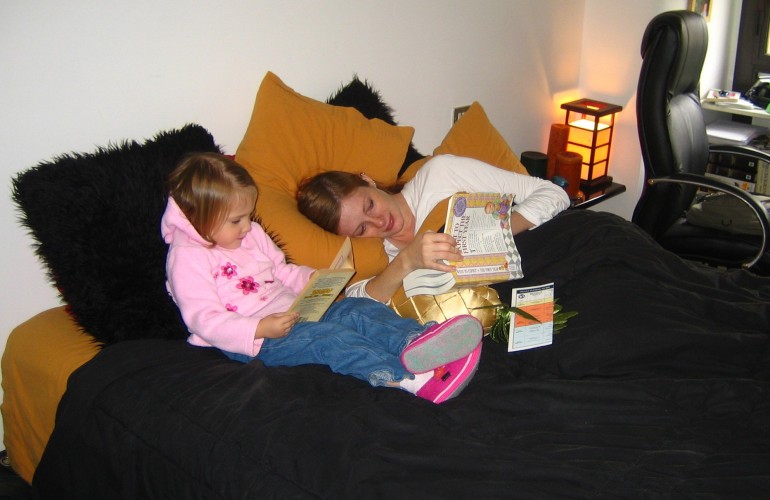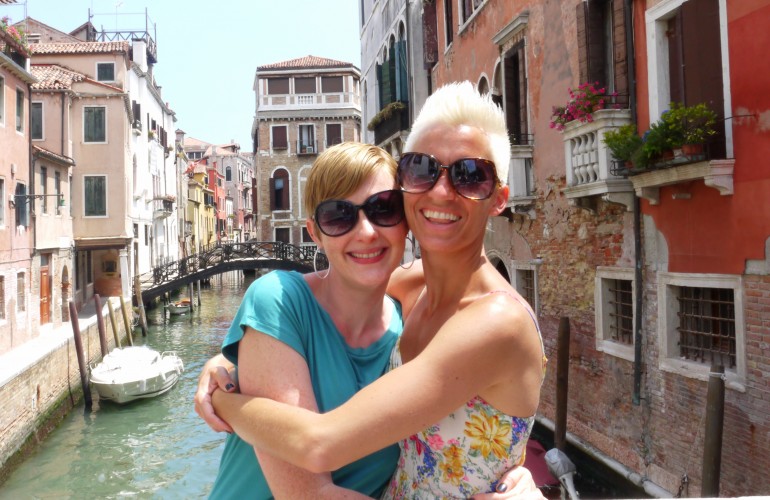Last week, I told Part 1 of our move to Italy—specifically, the part where I concluded that the whole thing had been a horrible cosmic prank designed to undo me. Part 2 has a decidedly different ending though, and I can’t think of a story I’d rather be sharing for my final post at A Deeper Story.
Here be miracles, folks:
[Ed: Now that Deeper Story has closed its doors, the post is here in its entirety:]
~~~
After a summer clinging to the kind of faith that leaps oceans, I had entered autumn and found that my grip was spent. I couldn’t buoy up my own trust anymore. I was weary and anxious and displaced, and I needed God to be the miracle-worker I saw on the pages of children’s Bibles, cloning loaves and fish for hungry crowds, calming the turbulent sea. I needed God to be Emmanuel in a very real way.
Instead, I found myself profoundly, terrifyingly alone.
The third morning after Dan flew back to the States to wrangle with bureaucracy, I woke up feeling like a puddle of my former self. Insomnia had done a number on me the night before, and two-year-old Natalie’s requests for me to get up! and make breakfast! and plaaaayyyy! ricocheted wildly against my veneer of sanity. I thought about our empty refrigerator, the dishes crusted into Seussical stacks around the sink, my husband’s absence, and the contractions squeezing into me and concluded that if I got out of bed that day, I would surely die. It was all too much.
I can’t do it, I told God, burying my face under the covers. I can’t go to the grocery store or take Natalie to the park or ANY of it. I just can’t. I don’t know wh—
The phone rang.
It was so unexpected, such a perfectly cued interruption to my woe, that curiosity pulled me out of bed. I choked back the panic I experienced every time I had to communicate in Italian and answered the phone. An acquaintance from our new church replied, speaking slowly enough that I could follow: “I was just calling to see if I could take Natalie out to the park this morning! Oh, and while I’m thinking of it, could you use any groceries?”
Now, by nature, I’m the kind of girl who’d turn down offers of help while lying semiconscious in the path of an oncoming bullet train because she doesn’t want to inconvenience anyone. Something switched in me that morning though. Desperation had dissolved my pride in self-reliance enough that I could see God’s choreography in the moment, and I wasn’t about to turn my back on it.
“Grazie,” I told the caller. Thank you, thank you, thank you.
When serendipity alights on your shoulder like that, you don’t expect it to stay. You marvel at its plume and the bright tilt of its head, knowing its attention is a rare and unforceable gift, and then you watch it leave with as much good grace as you can muster. I was amazed by the temporary relief I’d been given from my isolation and more grateful than I knew how to say in any language. However, exhaustion was pulling me under the surface of panic again by the next evening.
I don’t know how I’m going to cook dinner tonight. It feels like I just finished cleaning up from lunch, and I’m so weary, so utterly weary, and Natalie needs so much, and everything’s depending on me, and I just wish we had a pizz—
The phone rang again. This time, it was a girl I’d met a few weeks earlier offering to bring over a hot pepperoni with olives.
The same thing happened every remaining day until Dan got home. I would start to crumble with fatigue and overwhelm at the sticky mess left on the floor after breakfast, and the phone would ring with someone asking to come mop for me. Someone else came to vacuum. Others washed dishes, cooked lunch, scrubbed the bathroom, played with Natalie, sent over care packages, and ran errands for me so I could rest, and each offer arrived at the precipice of my need. Serendipity was quickly becoming a regular at our house.
I’ve never made it all the way through The Brothers Karamazov (with due apologies to my World Lit. professor), but this quote from it still captures me:
“Miracles are never a stumbling-block to the realist… The genuine realist, if he is an unbeliever, will always find strength and ability to disbelieve in the miraculous, and if he is confronted with a miracle as an irrefutable fact he would rather disbelieve his own senses than admit the fact. Even if he admits it, he admits it as a fact of nature till then unrecognized by him. Faith does not, in the realist, spring from the miracle but the miracle from faith.” – Fyodor Dostoyevsky
I realize that miracles are several centuries out of vogue, and I’m as predisposed to skepticism as a housecat. I have twitched while hearing about how God gave someone a front-row parking spot or made two hours of sleep as restful as eight or prevented some likely allergic reaction. I’ve imagined God shaking his head in amusement that his followers would see divine intervention where there was only coincidence.
I began to get a different picture of God during my week of small rescues though. I could have viewed those phone calls as “an act of nature,” I suppose, or explained them away as human kindness and nothing more. Maybe if I hadn’t felt so powerless against my circumstances, the realist in me would still be stepping over miracles as if they were part of the original landscape. As it was, however, I couldn’t help seeing the reflection of God’s smile in the steam coming off my pizza or in the just-scrubbed floor tiles. His presence filled that lonely little apartment every time someone stopped by to help, and the faith that had gotten me through the summer was still just sufficient enough for me to recognize myself in the presence of miracles.
I know that the mention of divine intervention opens up a can full of worms and questions and broken bits of people’s hearts. I don’t pretend to understand why God seems to alter some situations and leave others to run their courses. What I have learned, at least within the small scope of my experience, is that the existence of miracles in our day-to-day, twenty-first-century world has a lot to do with our ability to recognize them as such.
How we hear the ring of the phone when we’re drowning in loneliness… How we view the blooming of moonlight in the dark… How we interpret a front-row parking spot when our schedule’s turned urgent… How we mark the flutter of wings against our shoulders, serendipity alighting one too many times for us to keep mistaking it as chance. “Every good and perfect gift is from above,” writes James, and sometimes faith simply means letting our exhausted, lonely hearts believe it’s true.



























